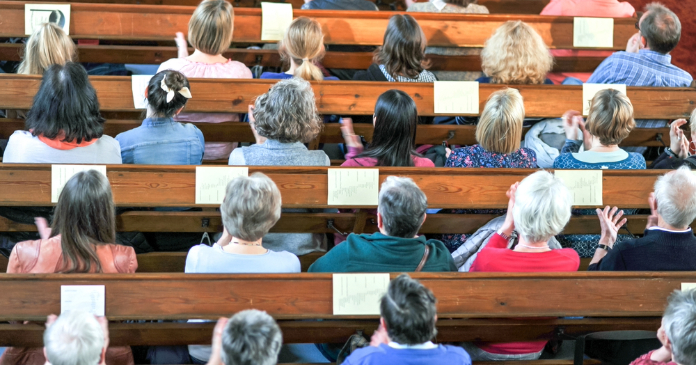
Column, Guest Author, Read
Last week the Pew Research Center released a new survey on religion in America; their first major study of this type since 2014. Upon the survey’s publication, I could almost hear a collective groan from Catholics, since we’ve come to approach such polls with a sense...

Column, Guest Author, Read
A long time ago, we hired a team of carpenters and plumbers to renovate a bathroom. Moe, Larry, and Curly were not masters of their craft. I should have fired them as soon as I saw what they had done to one of the doorways, removing the support for one of the uprights...

Column, Guest Author, Read
The memories are still vivid, even though it was a long time ago. Having been born in 1956, I’m just old enough to remember the confusing and tumultuous era of “the changes” that came after the Second Vatican Council, particularly regarding the Mass. One elderly...

Column, Guest Author, Read
Every Sunday at St. Anne Church in Richmond Hill, Georgia, the Hilleary family — mother Michelle, father Brian and five children — receives Communion at the altar rail. “It creates a more sacred space. And it draws your attention to the sacred,” Michelle Hilleary told...

Column, Guest Author, Read
What is “good” Mass music? As a parish music director, I have often pondered this question. The Church gives clear instructions concerning the implementation of music within the Mass. For instance, the Church stipulates that the most important thing to be sung is the...

Column, Guest Author, Read
It’s a popular pastime for Catholics to gripe about the music at their parishes. I should know because I was among those who did so. Instead of continuing the rich tradition of producing and preserving over a millennium of beautiful Catholic music, most parishes...







